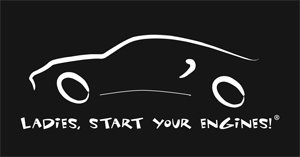Rattles in the dash or that loose tool rolling around in the trunk are usually noises that may prompt you to turn the radio up. However, many noises are an indication that something may be wrong and if left unattended can turn into costly repairs. Mentioning these noises when you take your vehicle in for service may save you money in the long run or simply give you peace of mind that nothing major is wrong. The key to keeping your vehicle running for many years is taking care of items before they break. So don’t turn that radio up, check it out!
Brake noise
There are several noises that you may hear coming from the brakes. The most common would be a rubbing noise while you’re driving with your foot off the brake. For the most part many of these noises are normal. Because brake pads can be made of different types of materials, sometimes the rubbing of the brake pad against the rotor will make noise. Most of the time you may notice this noise goes away once you drive the vehicle for a little bit and everything warms up. If however the noise goes away when you apply the brakes, you should have your brakes checked. It may mean that the brake pads are getting low and the noise you’re hearing is actually the warning devise on the pad doing its job. Any loud clunking or metal scraping noise is not normal and should be checked right away by a service facility.
Belt squeal
Belt noises are only heard when the engine is running. It may go away as the belt warms up, but should be fixed. A common fix for most people is to spray the belt with a belt quieter product. This is not the answer. Belts squeal for a couple different reasons and should be properly attended to. The belt may not be adjusted properly and if loose will make noise. You may also get a noise if a pulley that the belt travels on is not turning properly. A seized pulley will eventually break a belt, so it’s best not to let this noise continue. If you’re not sure how to adjust the belt or check the pulley, take your vehicle to a service station and have a technician look at it.
Noisy Steering
Here’s a noise you hear in a lot of cars as their making turns in a parking lot. This is a load moaning noise that is only heard when you’re turning the steering wheel from one side to the other. This usually indicates a problem with the power steering system. One possibility may be that you have air in your power steering pump. When the power steering fluid gets too low is will suck air into the system causing the noise. You may be able to fix the problem yourself by adding power steering fluid. Keep the cap open, fill to the full line and turn the steering wheel back and forth in full turns until you notice no bubbles coming up from the fluid or the noise goes away. Make sure that you use only the fluid recommended for your vehicle by the manufacturer, or you may cause more damage. When you’re finished make sure the fluid is full to the line and close the cap. If the noise returns you most likely have a leak in the system and should take your vehicle to a service station to have it serviced.
Clicking noise coming from the wheel when turning
This noise is mostly heard when you are driving around a corner. This noise sounds like a clicking coming from the wheel and may go away once the wheels are driving straight again. This is usually an indication of a bad CV Joint. In most cases the boot that covers the joint has ripped and the lubrication for the joint leaks out. This problem should be addressed right away. Leaving this problem could eventually cause the CV Joint to break and the driver would lose control of that particular wheel. It will also be a much more costly repair if the whole CV Joint has to be replaced because of damage.
Tapping in the engine when the vehicle is running
A tapping noise coming from the top of the engine could mean a couple things. The first thing to check would be low oil level. With the engine turned off pull the dipstick and check the level. If the oil is low add more oil while regularly checking the dipstick so as not to over fill. Start the engine and see if the noise goes away. If the oil is at the proper level then you may need to have your valves adjusted. Check your owner’s manual for proper service for a valve adjustment. Many vehicles today have self-adjusting valves, so this may not apply. If this is the case, then you should have your vehicle serviced by a trained technician. Leaving this problem will only create bigger problems down the road.
Lori
Thursday, September 2, 2010
Subscribe to:
Post Comments (Atom)





No comments:
Post a Comment